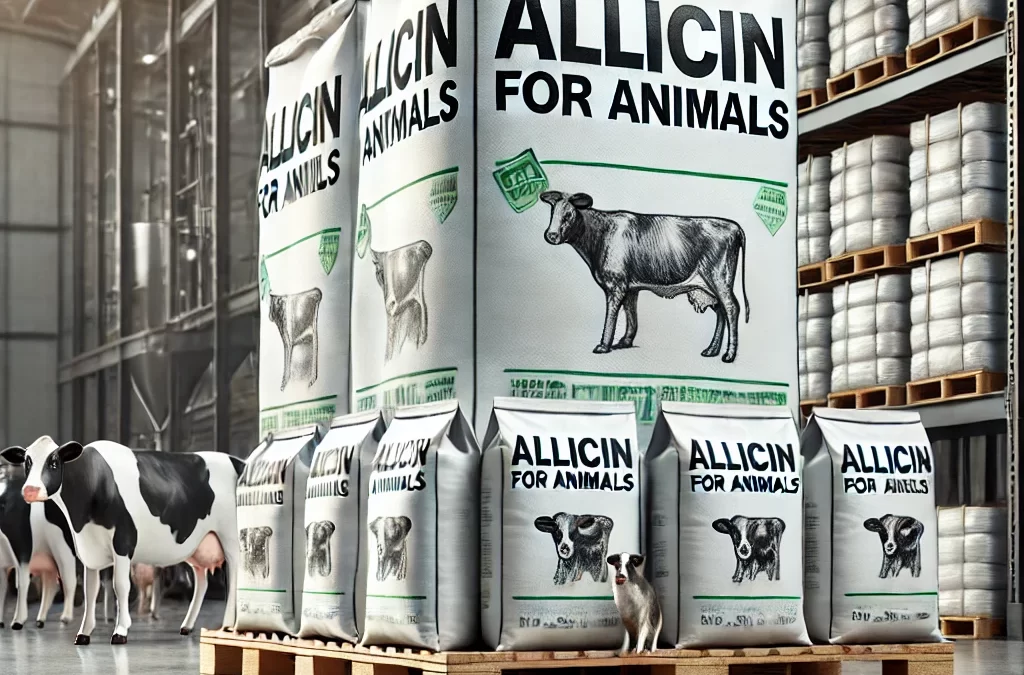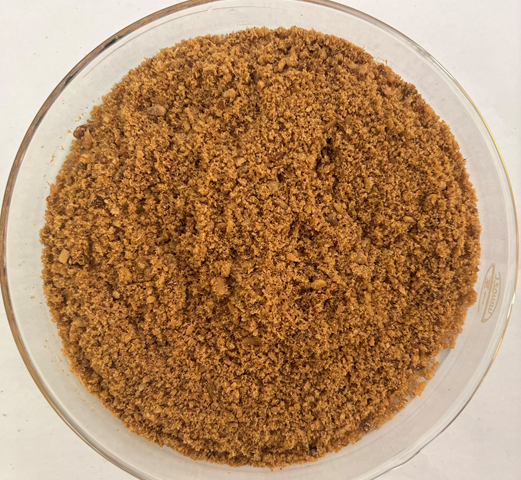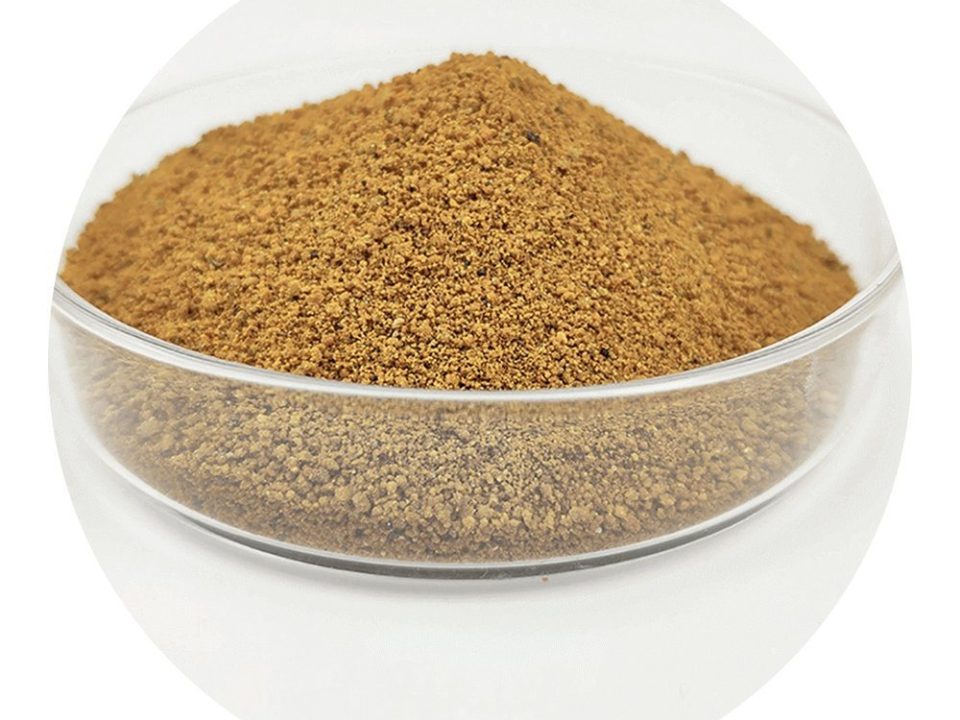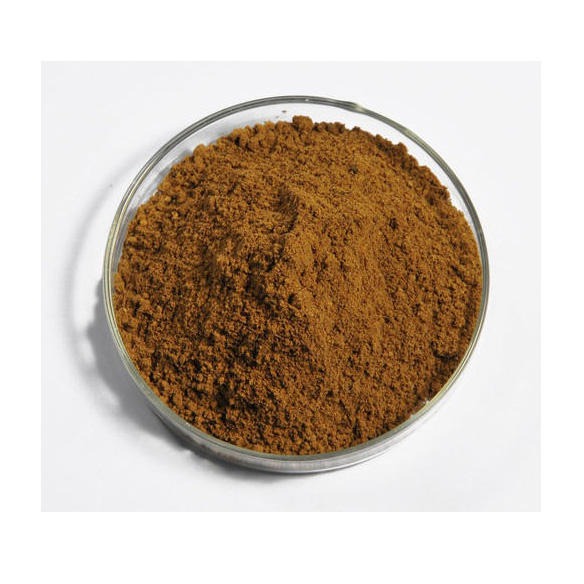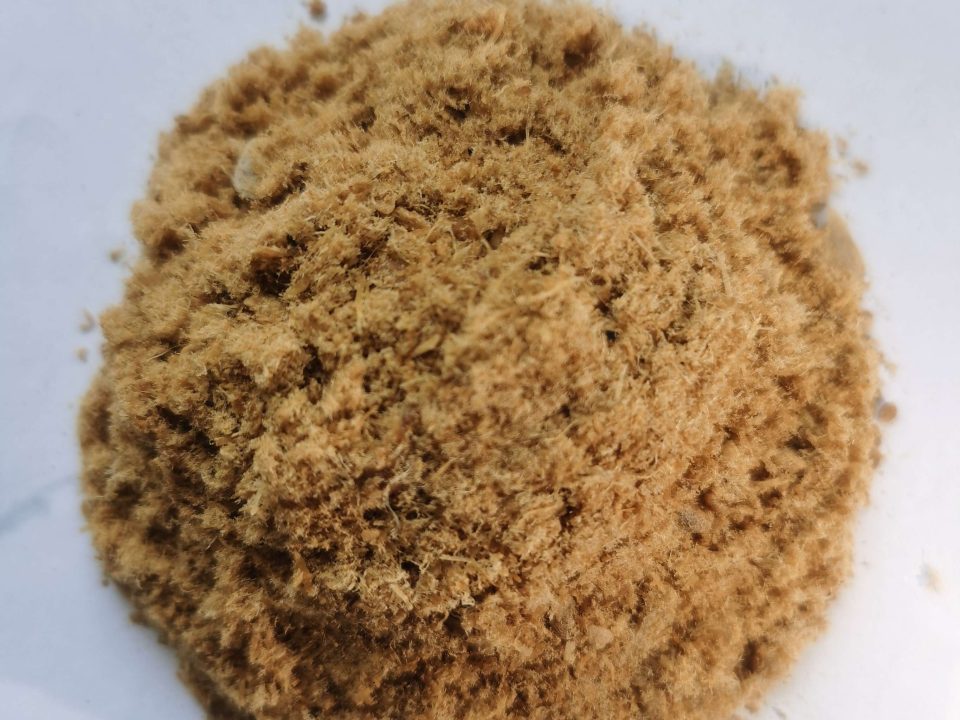Allicin Parameter Table for Cattle
Below is a comprehensive table summarizing the key parameters of allicin supplementation for cattle, including its physical properties, nutritional benefits, dosage, and practical considerations.
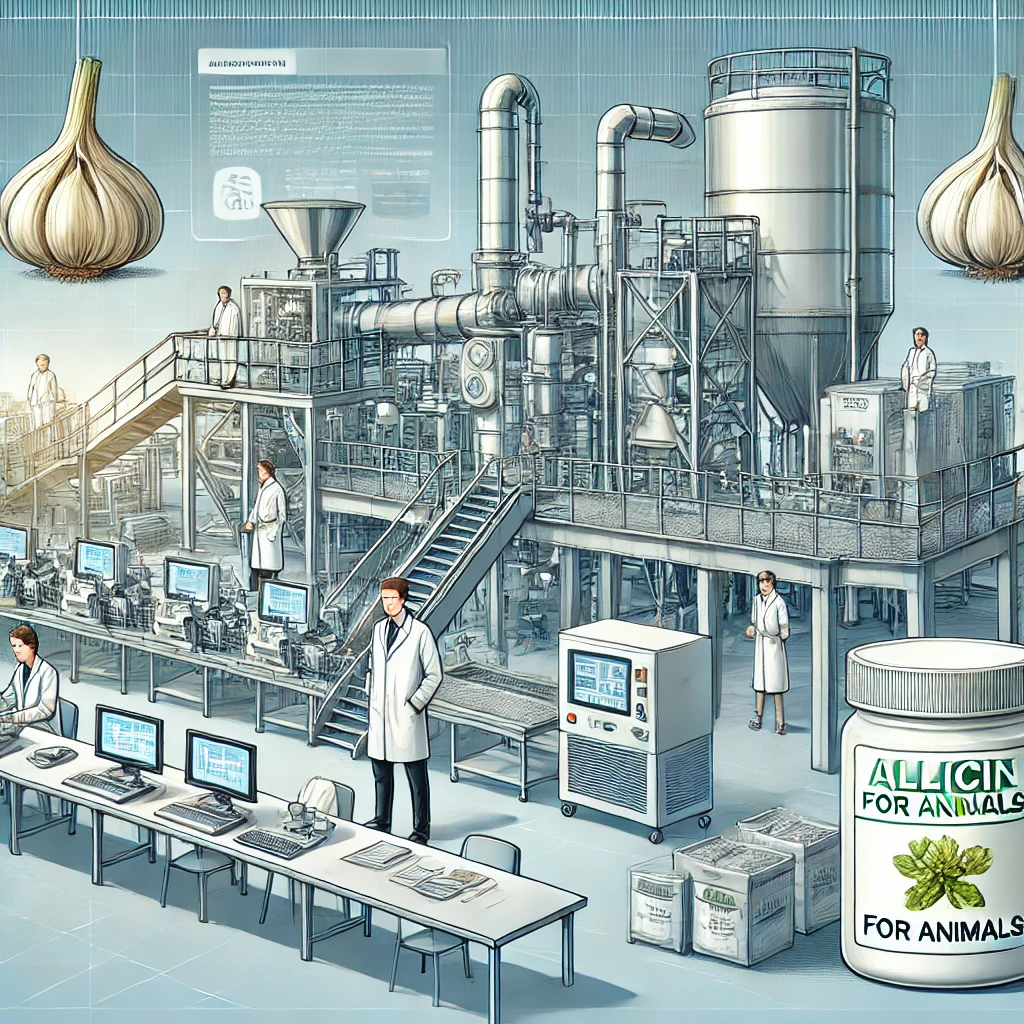
| Parameter |
Details |
| Compound Name |
Allicin (Diallyl thiosulfinate) |
| Chemical Formula |
C6H10OS2 |
| Molecular Weight |
162.27 g/mol |
| Source |
Derived from garlic (Allium sativum) |
| Physical Appearance |
Yellowish, oily liquid (pure form); powder form in stabilized supplements |
| Solubility |
Soluble in water, ethanol, and oil |
| Odor |
Strong garlic-like odor |
| Stability |
– Highly unstable in its pure form; quickly degrades to other sulfur compounds. |
| |
– Stabilized allicin forms (encapsulated or powder) are more durable. |
Nutritional and Functional Parameters
| Parameter |
Details |
| Primary Benefits |
Antimicrobial, antioxidant, anti-inflammatory, immune-stimulating |
| Target Areas |
– Gut health (pathogen control) |
| |
– Milk production and udder health |
| |
– Growth performance and feed efficiency |
| |
– Stress and oxidative damage mitigation |
| Mode of Action |
– Disrupts bacterial cell membranes and inhibits microbial growth. |
| |
– Neutralizes free radicals to reduce oxidative stress. |
| |
– Enhances immune response and reduces inflammation. |
| Effective Range |
Broad-spectrum activity against bacteria, fungi, viruses, and parasites. |
Dosage Guidelines for Allicin in Cattle
| Purpose |
Recommended Dosage (per head/day) |
| General health and immunity |
100–200 mg |
| Growth promotion |
200–300 mg |
| Milk yield improvement |
150–250 mg |
| Heat stress mitigation |
200–400 mg |
| Disease control (e.g., mastitis, gut infections) |
300–400 mg |
| Calves |
50–100 mg |
Forms of Allicin Supplements
| Form |
Description |
| Garlic Powder-Based Additives |
– Common, cost-effective form of allicin supplementation. |
| |
– Contains allicin precursors (e.g., alliin) activated during digestion. |
| Encapsulated Allicin |
– Stabilized form ensuring controlled release in the GI tract. |
| |
– Improves bioavailability and effectiveness. |
| Liquid Garlic Extracts |
– Concentrated allicin solution, suitable for water or liquid feed mixing. |
| Premixes |
– Allicin combined with probiotics, vitamins, or minerals for enhanced benefits. |
Supplement Administration and Mixing
| Parameter |
Details |
| Feed Mixing |
Mix allicin powder or premix into total mixed rations (TMR) or concentrates. |
| Water Administration |
Add liquid allicin extracts to drinking water (ensure clean water supply). |
| Compatibility |
Compatible with most feed ingredients; avoid high-temperature processing (>60°C) to prevent degradation. |
| Palatability |
Start with low doses and gradually increase to prevent feed refusal due to strong garlic odor. |
Storage and Stability
| Parameter |
Details |
| Storage Temperature |
Store below 25°C in a cool, dry place, away from sunlight and moisture. |
| Shelf Life |
– Powder: 12–18 months (in sealed containers). |
| |
– Liquid: 6–12 months (in sealed bottles). |
| Packaging |
Airtight bags or containers with protective inner linings for powders; sealed bottles for liquids. |
Safety and Side Effects
| Parameter |
Details |
| Safe Dosage Range |
100–400 mg per head/day, depending on the purpose and age of the cattle. |
| Overdose Risks |
– Gastrointestinal upset (diarrhea, bloating). |
| |
– Reduced feed intake due to strong sulfur odor or taste. |
| |
– Potential sulfur toxicity if combined with other sulfur-rich feeds (e.g., molasses, distillers’ grains). |
| Milk Impact |
Excessive allicin in dairy cows may alter milk odor and flavor. |
| Allergic Reactions |
Rare cases of skin irritation or respiratory discomfort in cattle. |
Performance Indicators to Monitor
| Parameter |
Measurement |
| Feed Conversion Ratio (FCR) |
Improved feed efficiency in beef cattle. |
| Growth Rate |
Increased average daily gain (ADG). |
| Milk Quality |
Lower somatic cell counts (SCC) and improved milk composition. |
| Health Metrics |
Reduced incidence of diseases (mastitis, diarrhea, respiratory infections). |
| Stress Resistance |
Improved tolerance to heat stress and transport. |
Conclusion
Allicin supplementation in cattle offers a natural, effective way to enhance growth, improve milk production, and support overall health. By following recommended dosages and carefully selecting stable allicin supplements, farmers can maximize its benefits while minimizing potential side effects. Proper storage, mixing, and monitoring of cattle performance are crucial to achieving optimal results.




